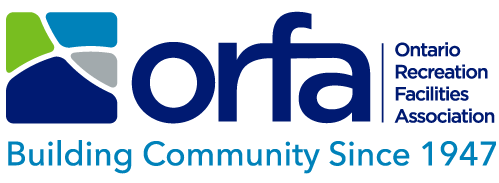- ORFA Home
- Resource Centre
- Technical Corner
- Recreation Under Attack
Technical Corner
Recreation Under Attack
November 7, 2024
Introduction
A recent event in a Newfoundland ice arena received national attention when a hockey player attacked a fan in the dressing room hallway who had been taunting him while on the ice [More]. The event is one more example of shifting social attitudes regarding violence in a recreational setting that many operations are unprepared for. To suggest that this type of event has not occurred in the past would be false, as interaction between players and fans has always been part of the game however, the increase in such events and the level of aggression has become more common.
Determining who is responsible for security in community recreation facilities is a complicated but regulated topic. Facility management is responsible for user safety under the Occupiers Liability Act RSO 1990, c O.2 while worker safety is guided by violence in the workplace regulations as outlined in the Occupational Health and Safety Act. If facility management believes that building security is an expected duty of frontline staff, then the Security Guards Act SO 2005, c 34 must be reviewed to ensure that staff are properly trained to perform this responsibility.
The expectation that local police services will respond to such events, to act in a mediation or security guard type function, should not be expected. Police will respond if the event escalates to extreme physical force that requires medical attention or if charges are laid by one of the individuals who was part of the incident. Should police believe that the event meets the level of an assault, they may press charges. If a person is injured, the individual may seek compensation through the courts under Tort law Tort Law. This process may draw in the facility ownership along with the accused as the victim may believe the facility failed to provide a safe environment.
While evaluating due process associated with the most recent event in Newfoundland, the following might assist other facility managers in determining any gaps they may have in their operations.
- Is this an isolated incident or has similar events taken place in the past? If there is a pattern of these types of situations and facility management failed to respond, defending operations may be difficult.
- What direction or transfer of responsibility to the facility renter is in place? Facility contracts not only provide details to the rental relationship but they may also be considered a waiver as facility management places direct responsibility and expectation back on the user group to ensure player and public safety. [More - ORFA Is it Time to Refresh Facility Contracts Guideline]
- What does current facility policy state? It is reasonable for facility management to build in security responsibilities to a rental agreement as required. User groups that have a known poor conduct behaviour that creates risk should be managed. Adding the cost of appropriate security personnel to the rental estimate is an acceptable operational approach.
- The Newfoundland incident speaks to the loss of privilege for use of the ice rink by one of the persons involved. Removing entry to a public facility is a complicated legal process as outlined in the Trespass to Property Act RSO 1990, c T.21.
The age-old adage of “my house – my rules” can often be applied in these kind of situations but the rules must be documented as formal policy so that all persons involved understand the process, responsibilities and possible consequences associated with these types of incidents. Facility management is responsible for the care and control of their infrastructure. The ORFA does a forensic evaluation of these type of responsibilities in the Legal Awareness II – Managing in a Recreation Environment course. In addition, ORFA will be offering a 1-day online instructor led workshop on understanding and complying with violence in the workplace regulations in 2025. Watch ORFA's ENews for more details.
Comments and/or Questions may be directed to Terry Piche, CRFP, CIT and Director, Training, Research and Development, Ontario Recreation Facilities Association
|
Note: The publisher, (Author(s)/General Editor(s)/Licensor(s)) and every person involved in the creation of this communication shall not be liable for any loss, injury, claim, liability or damage of any kind resulting from the use of or reliance on any information or material contained in this communication. While every effort has been made to ensure the accuracy of the contents of this communication, it is intended for information purposes only. When creating this communication, none of the publisher, the (Author(s)/General Editor(s)/Licensor(s)) or contributors were engaged in rendering legal or other professional advice. This communication should not be considered or relied upon as if it were such advice. If legal advice or expert assistance is required, the services of a competent professional should be sought and retained. The publisher and every person involved in the creation of this communication disclaim all liability in respect of the results of the any actions taken in reliance upon information contained in this communication and for any errors or omissions in the works. They expressly disclaim liability to any user of the work. |
